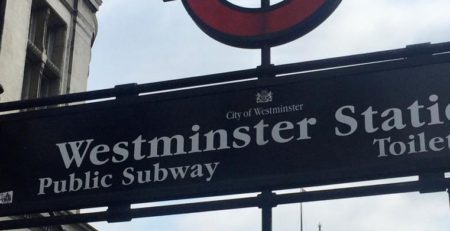A Strange Hatred of Unions
In order to leave one union, the United Kingdom risks breaking up its own.
The withdrawal agreement negotiated by Boris Johnson with the European Union establishes that Northern Ireland will remain aligned with EU rules, which will apply to that region alone and not to the rest of the UK. However, although Northern Ireland will de facto remain within the EU’s Customs Union, it will de jure remain within the UK’s customs realm, meaning the region would still benefit from any post-Brexit trade agreements the UK agrees with other countries.
It is instructive to remember that the DUP opened the door to this solution when it signed on to Boris Johnson’s original plan which accepted the different regimes for Northern Ireland and the rest of the United Kingdom, although with the important difference that Northern Ireland, after an initial period, would have the right to, unliterally, decide whether it wanted to maintain or terminate this arrangement. This was the first time that the Unionists had accepted a solution along these lines but were surprised and disappointed when the final agreement reached with the European Union kept the principle but removed their say in the termination of that solution.
This means that in practice, although much downplayed by the government, and as Britain will be out of both the Customs Union and Single Market after Brexit, regulatory and customs checks and controls will be needed for goods going from Britain to Northern Ireland. It is of course hoped that the extent of these checks will be reduced thanks to a series of tariffs exemptions, but this in effect amounts to the so called “Border on the Irish Sea”, which was always dismissed as an option by Unionists and by Teresa May.
This sea border will remain in place until a workable mechanism is found which preserves the status quo on the island of Ireland but which also permits that both countries have different customs and tariffs rules. This is of course the solution which has eluded all the Brexit negotiators since the referendum, and it is difficult to see how this seemingly intractable problem can be solved in the near future.
The practical import of this solution is that Northern Ireland will firm up their ties with the Republic of Ireland while having a different regime from the rest of the United Kingdom. These closer ties to the Republic have always been fiercely resisted by the Unionists in Northern Ireland (and why the DUP has not approved this new proposal), who see this as a step towards the possibility of a united Ireland (in the sense that the longer Northern Ireland remains aligned with the Republic and the EU, the more risk there is of during this period an argument being made that if they are so aligned – and non-aligned with the rest of the United Kingdom – the more sense it arguably makes to just treat both as a single entity).
And the risk is not limited to Northern Ireland. Scotland, where a majority of 62% voted to remain in the European Union, has already stated that they want (at least) to have the same regime as Northern Ireland. As early as 2016, notwithstanding that clear remain vote, the Scottish Government put forward compromise proposals to keep the whole of the United Kingdom in the Single Market and Customs Union, and if that did not prove possible, for a differentiated deal for Scotland to stay in the Single Market (which is in practice what Northern Ireland will now have).
The view in Scotland is that it will be at a competitive disadvantage in relation to Northern Ireland and why should Northern Ireland be entitled to have a different regime from one Scotland would also like to have? Of course the practical difficulty is similar to the Irish border question – how would it be possible to have this customs border along Hadrian’s Wall? And if this solution is not workable, we can expect the demand for a second independence referendum to be reinforced (Nicola Sturgeon has already said that before year end she will ask the UK Government to approve another independence referendum), with the real risk of a different result, and yet another piece of the United Kingdom dropping out.
Even Wales, where a majority voted to leave, has grave reservations over this withdrawal agreement, and the Welsh Assembly voted against it on the 22nd of October (even though this vote has no practical legal consequences, as the Supreme Court ruled in 2017 that the UK did not have to consult the devolved administrations before triggering Article 50). The Welsh First Minister stated that the deal would clearly damage the Welsh economy and that the arrangements for Northern Ireland would result in a “hard border in the Irish sea” and amount to “a huge breach in the economic integrity of the United Kingdom”. So it seems the plan on the table causes grave discomfort (to say the least) to all the other nations of the United Kingdom.
It is true that England has 85% of the population of the United Kingdom, but it is worrying that it seems gradually to be less concerned about the other four nations. A poll in 2019 showed that Conservative voters, in order to achieve Brexit, would be willing to “lose Scotland” – an astonishing result. The terms of the final agreement, as discussed above, also show a government willing to accept a Northern Ireland proposal that the Unionist party is opposed to.
Over the last two and a half years, since the referendum, we have seen British politics departing from its reputation (deserved or undeserved) as a pragmatic, solution driven and common sense-based system, envied by many other European countries, tired of their own acrimonious and ineffective systems. Europeans have been watching, with increasing surprise, this “television comedy-drama series” (as a comic website called the Brexit process), that has revealed British politicians to not be very different from their European counterparts (if I were British I would call them “continental counterparts”, a true reflection that they have never really, even after all these years, considered themselves European).
The British historical two-party first past the post system is failing in its main objective, which always was to encourage parties to propose policies that would appeal to most of the voters, which necessarily implies a wider breadth of opinions rather than a narrow ideological position. Both the main British parties appear in the last couple of years to have been pushed to their extremes, and have ceased to be the broad church that has ensured their success in the past. The internal “purges”, the constant defections and the ever more extremist language of the us-and-them are all symptomatic of this crisis, and in part explain a certain lack of reasonableness that has led to no generally accepted solution being found for this Brexit problem.
In conclusion, in this desperate rush to “Get Brexit Done” on any terms, the United Kingdom runs the real risk of jeopardizing its own union. Is this “animosity” towards the European Union really worth running this risk?













